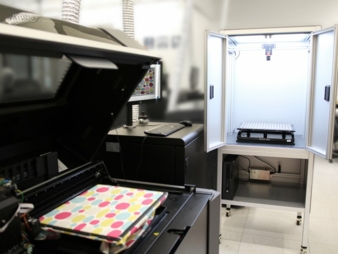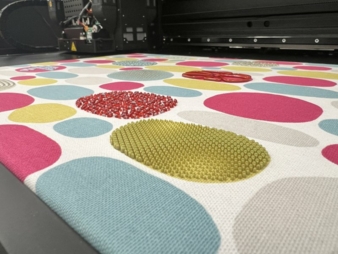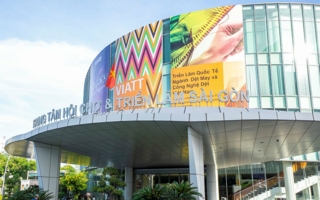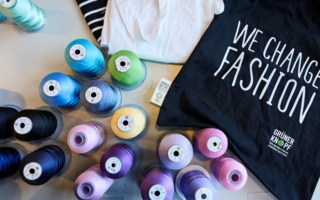29/10/2024 – 3D printing
Stratasys introduces a new era in 3D printed fashion
The new TechStyle fabric alignment station meets high-end fashion demands to seamlessly integrate various technologies while printing with high accuracy.
Stratasys Ltd. announced the launch of its TechStyle Fabric Alignment Station, the next step in the evolution of Stratasys 3DFashion technology. This solution is designed to meet the demands of high-end fashion designers, offering a unique workflow, enabling integration with embroidery, laser cutting, embossing, 2D silk printing, and many other production methods.
By extending the capabilities of the J850 TechStyle full colour solution, designers can now enjoy unprecedented accuracy by aligning 2D printed patterns with intricate 3D designs within defined garment areas such as pockets and patches, and 3D designs on specific sections of a garment created using stitching techniques like embroidery and knitting. This unprecedented additive manufacturing fashion solution eliminates the trial-and-error traditionally associated with aligning designs on finished garments, reducing costs, improving production times, and promoting more sustainable production by minimising material waste. “Today’s fashion consumers value personalisation, driving demand for customisable and bespoke products, empowering them to achieve a new level of design,” said Zehavit Reisin, Senior Vice President, Consumer Solutions at Stratasys. “This solution is transforming the creative process and production efficiency.”
Key features and benefits
Enhanced design accuracy: the station aligns 2D patterns and 3D designs with exceptional precision, allowing designers to place 3D printed elements exactly where they are needed.
Efficiency and cost savings: by automating the alignment process, the station reduces the need for manual adjustments, saving time and lowering production costs.
Sustainability: the solution minimises material waste, supporting environmentally conscious production practices.





